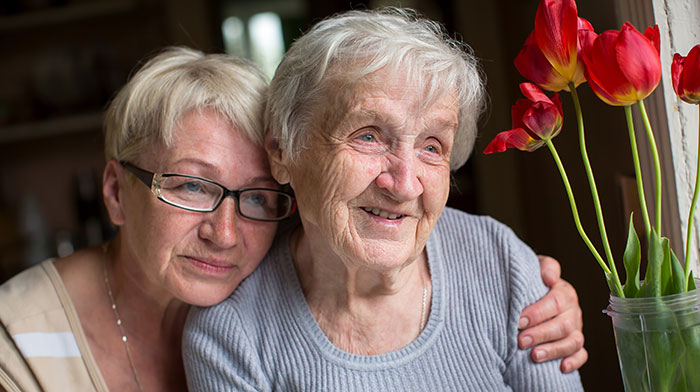How dementia affects family life

A person experiencing memory loss is, at the least, confused. When we can’t remember and track what’s going on, it’s very confusing. And it can be scary!
Anger and fear are natural responses. People with dementia often don’t recognize they have a problem. They just know that the world is not as they expect it to be.
Personality changes are common, as are changes in behaviors as the disease progresses. For instance, people with middle-stage dementia frequently lose their social inhibitions. They forget the social customs we call manners. This can lead to actions that are embarrassing and very confusing for families.
Family stress
Research indicates that caring for a person with memory loss is extremely stressful. A diagnosis of dementia, more than other conditions, takes its toll on the family.
Dementia caregivers are much more likely to be depressed. They also are more likely than other caregivers to develop significant health problems.
If your relative has dementia, you need to be extra careful to mind your own health. And you need to develop strategies for coping with stress.
 Return to top
Return to top
Role changes
Although working together as a team is optimal in eldercare, it can be challenging in the case of dementia.
In the earlier stages, it is important that the person with dementia be involved in decision making. As the disease progresses, however, they will lose the ability to make reasoned decisions. More than with other conditions, the role of the family will change.
Determining when and how to phase out responsibility for decision making can be difficult. An Aging Life Care Manager® can give you a sense of the stage of dementia. They can help walk you through the formal diagnosis process. An Aging Life Care Manager can also help you find resources now and plan for the future.
Return to top
Getting support
Even if the memory loss condition is not curable, there are things you can do to make daily life more pleasant for all of you.
It’s very important that you reach out and get help. Caring for someone with dementia can be physically and emotionally taxing. Family members need patience, strength, and regular breaks from caregiving. Support groups can be extremely helpful for providing tips about daily life and coping with the stress. They can also tell you about other programs and sources of support.
People with dementia also need support and access to others who know what it’s like. Joining a support group of people with dementia during the early-stage is invaluable for them!
You don’t have to do this alone
At Aging Well Eldercare, we understand dementia. Give us a call at 301-593-5285. We’d be happy to help with resources for everyone in the family.
What kind of support do you have as a caregiver?
Return to top

